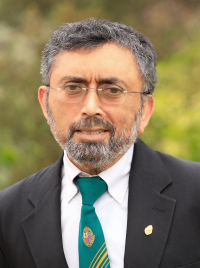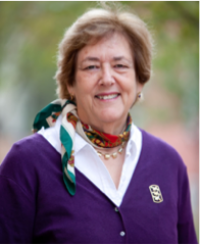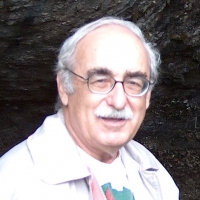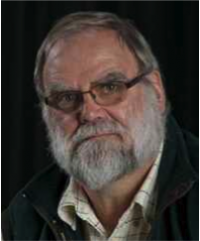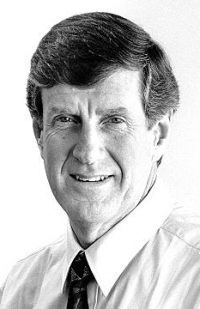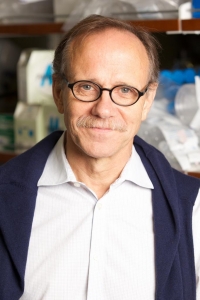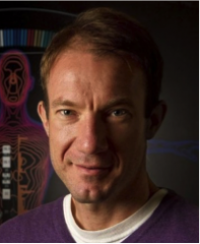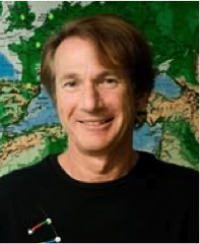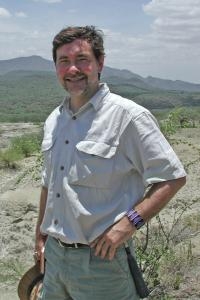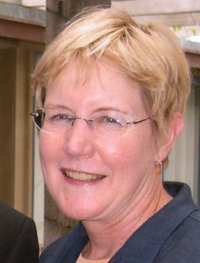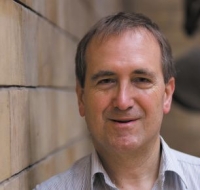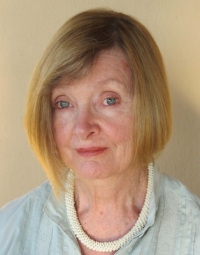Behaviorally Modern Humans: The Origin of Us
Biographical Sketches: Co-Chairs
UC San Diego School of Medicine
Ajit Varki is a Distinguished Professor of Medicine and Cellular & Molecular Medicine, Emeritus Co-Director of CARTA, Emeritus Co-Director of the Glycobiology Research and Training Center at UC San Diego, and Adjunct Professor at the Salk Institute. He received basic training in physiology, medicine, biology, and biochemistry at the Christian Medical College (CMC), Vellore, The University of Nebraska, and Washington University in St. Louis. He also has formal training and board certification in internal medicine, hematology, and oncology. Varki is the executive editor of Essentials of Glycobiology (Cold Spring Harbor Press, 4th Edition, 2022) and is recipient of a MERIT award from the NIH, and an American Cancer Society Faculty Research Award. Honorific elections include the American Academy of Arts and Sciences, the National Academy of Medicine, the American Society for Clinical Investigation, and the Association of American Physicians. He is also recipient of the three highest honors in his field, the Karl Meyer Award of the Society for Glycobiology, the International Glycoconjugate Organization Award and the Rosalind Kornfeld Award for Lifetime Achievement in Glycobiology. He is recognized for creating the first major open access research journal (J. Clin. Invest., 1996) as well as the first major open access textbook (Essentials of Glycobiology, 2009). He was honored with the Old Cottonian of Eminence Award at the 150th Anniversary of Bishop Cotton Boys School, Bangalore, India, (2015) as well as a Distinguished Faculty Medal and Oration at his medical school alma mater, CMC, Vellore. Significant past appointments include: Co-Head, UC San Diego Division of Hematology-Oncology; President of the Society for Glycobiology; Editor-in-Chief of the Journal of Clinical Investigation; Interim Director of the UC San Diego Cancer Center, President of the American Society for Clinical Investigation, and UC San Diego Associate Dean for Physician-Scientist Training. Varki's research interests are focused on a family of cell surface sugars called sialic acids, and their roles in biology, evolution and disease. Currently, active projects are relevant to the roles of sialic acids in microbial infectivity, the regulation of the immune response, the progression and spread of tumors, aging, and unique aspects of human evolution. His group is particularly intrigued to find multiple interrelated differences in sialic acid biology between humans and our closest evolutionary cousins, the "great apes." These differences are a signature of the events that occurred during the last few million years of human evolution, and appear to be relevant to understanding several aspects of the current human condition, both in health and disease. Varki’s book, Denial (Twelve, Hachette Books, 2013), explores a novel "Mind Over Reality Transition” (MORT) theory that denying reality and personal mortality was a key step in allowing the emergence of a full theory of mind, and in the origin of our species.
George Washington University
Alison S. Brooks is a professor of anthropology and international affairs at the George Washington University and a founding member of the Center for the Advanced Study of Hominid Paleobiology (CASHP). In addition, she is a research associate in the Human Origins Program at the National Museum of Natural History, Smithsonian Institution, a visiting researcher at Harvard University and a fellow of the American Academy of Arts and Sciences. She received her PhD from Harvard in 1979 for research on the initial Upper Paleolithic occupation of Western Europe. As the origins of these first “anatomically modern” Europeans clearly lay outside that continent, her fieldwork has explored the Pleistocene prehistory of multiple African countries. These include Botswana, where she studied the lifeways of San hunter-gatherers and documented their long-term history, Zimbabwe, D.R. Congo, Ethiopia, Kenya, Tanzania and South Africa. Her African work focuses on defining and dating the Middle Stone Age of Africa and understanding both cultural diversification within Africa and the cognitive and behavioral transformations that led to the expansion of our species throughout the world. She was instrumental in developing chronometric techniques for sites that are too old for radiocarbon, and in documenting the oldest evidence for fishing technologies and projectile weapons, as well as early evidence for the expansion of social networks and symbolic behavior, and the first evidence that starch grains were preserved in the dental calculus of fossils from Africa, the Near East and Europe, allowing us to reconstruct the plant segment of their diets. She is co-editor of The Encyclopedia of Human Evolution and Prehistory and her scholarly papers include “The Revolution That Wasn’t: A New Interpretation of the Origin of Modern Human Behavior” with Sally McBrearty in the Journal of Human Evolution (2000).
Biographical Sketches: Speakers
Harvard University
Ofer Bar-Yosef (1937-2020) was the George G. and Janet G.B. MacCurdy Professor of Prehistoric Archaeology in the Department of Anthropology at Harvard University. He excavated Palaeolithic and Neolithic caves and open-air sites in Israel, Sinai (Egypt), Turkey, Czech Republic, Republic of Georgia, and China. His main interests and the subjects of his publications incorporated the evidence for early human dispersals into Eurasia, the demise of the Neanderthals, first archaic and modern humans in Asia, late Ice Age foragers, and the emergence of the earliest agricultural systems in the Near East (western Asia) and China where he was still involved in fieldwork until his death in 2020.
University of New England, Australia (retired)
Iain Davidson is an emeritus professor of archaeology and paleoanthropology at the University of New England, Australia. His research has included work on the Spanish Upper Paleolithic, archaeology and ethnography of Northwest Queensland, Australian rock art, the colonization of Sahul, language origins, cognitive evolution, and projects with multiple Aboriginal groups in Australia. Publications include numerous books, chapters, and journal articles. He is a Fellow of the Australian Academy of Humanities, Visiting Chair of Australian Studies at Harvard University (2008-9), and 2010 recipient of the Rhys Jones Medal of the Australian Archaeological Association.
UCLA
Christopher Ehret is a Distinguished Research Professor of History at UCLA whose research has dealt with a wide variety of African historical and cultural topics and a wide range of time periods. A major methodological focus in his work has been to develop the tools and techniques for reconstructing the ancient human past from the evidence of language and correlating this with other types of evidence. One long-running theme in his research has been the origins and early history of agriculture in Africa. A second major focus has been on understanding the ways in which cross-cultural interactions have shaped the courses of long-term social, cultural, and economic change across the continent. Recently he has embarked on new research into the longue durée histories of African kinship systems, and he has engaged in collaborative work with geneticists and biological anthropologists on the possibilities of correlating their findings with those of linguistics and archaeology.
Salk Institute for Biological Studies
Fred H. Gage is a Professor in the Laboratory of Genetics and the past President (2018-2023) of the Salk Institute. He is an Adjunct Professor at UC San Diego, and emeritus Co-Director of CARTA. Dr. Gage concentrates on the adult central nervous system and unexpected plasticity and adaptability to environmental stimulation that remains throughout the life of all mammals. His work may lead to methods of replacing or enhancing brain and spinal cord tissues lost or damaged due to Neurodegenerative disease or trauma. Gage's lab showed that, contrary to accepted dogma, human beings are capable of growing new nerve cells throughout life. Small populations of immature nerve cells are found in the adult mammalian brain, a process called Neurogenesis. He is working to understand how these cells can be induced to become mature functioning nerve cells in the adult brain and spinal cord. They showed that environmental enrichment and physical exercise can enhance the growth of new brain cells and they are studying the underlying cellular and molecular mechanisms that may be harnessed to repair the aged and damaged brain and spinal cord. Gage is a member of the National Academy of Science and the Institute of Medicine.
University of California, Santa Cruz
Richard “Ed” Green is an assistant professor of biomolecular engineering, Baskin School of Engineering, UC Santa Cruz. Professor Green was born and raised in Atlanta, Georgia. He graduated from the University of Georgia in 1997 with a B.S. in genetics. He was a Peace Corps volunteer in Barentu, Eritrea in 1997 and 1998, teaching Math & Physics. He took his Ph.D. from the University of California, Berkeley in 2005. His advisor was Steven Brenner with whom he co-authored 14 papers on a wide-variety of computational biology subjects. In 2005, he joined Svante Paabo’s group at the Max Planck Institute for Evolutionary Biology as an NSF Postdoctoral fellow in Bioinformatics. There, he helped form and lead the Neandertal Genome Sequencing Consortium that sequenced the genome of our closest extinct relative from DNA recovered from 38,000 year old bones. This paper won the Newcomb Cleveland Prize for the best paper in the journal Science for 2010. Since 2010, Ed has been an Assistant Professor of Biomolecular Engineering at the University of California, Santa Cruz. He is a Kavli Scholar, a Searle Scholar, and a Sloan Research Fellow. His current research program is generally involved in using genomics to answer fundamental biological questions.
University of Arizona
Michael Hammer is an associate professor and research scientist (Arizona Research Laboratories) at the University of Arizona with joint appointments in anthropology, ecology, and evolutionary biology. Dr. Hammer is a population geneticist who studies patterns of genetic variation in modern-day populations to gain insights into the evolutionary origins of Homo sapiens. His laboratory is currently constructing a novel re-sequencing database of loci throughout the genome to understand better the evolutionary processes that shape human variation and to test models of human origins.
University of Connecticut, Storrs
Sally McBrearty was a professor emerita and former head of the Department of Anthropology at the University of Connecticut, Storrs, before her passing in July 2023. She was preceded in death by her husband and CARTA Member Andrew Hill (d. 2015), also a paleoanthropologist. McBrearty directed archaeological field projects for more than 30 years in East Africa, focusing upon the Middle Pleistocene and the origin of Homo sapiens. She was particularly interested in the behavior of early humans, their environmental setting, and how behavior and environment interact with geologic processes to produce the fossil and archaeological records.
She received her undergraduate degree from the University of California at Berkeley and her graduate degrees from the University of Illinois, Urbana; she held faculty positions at Brandeis, Yale, and the College of William & Mary. Her work was supported by NSF, the Wenner-Gren Foundation, the National Geographic Society, and the L.S.B. Leakey Foundation, and she served on the editorial boards of the Journal of Human Evolution, Before Farming, and Springer’s Vertebrate Paleobiology & Paleoanthropology monograph series.
Her 2000 publication with CARTA Member Alison Brooks, “The Revolution That Wasn’t,” in Journal of Human Evolution, is the most frequently cited paper in that journal’s history (i.e., cited over 1800 times). McBrearty and CARTA Member Nina Jablonski are credited with the discovery of the first known chimpanzee fossils. McBrearty collected the first fossil, a molar, during her surveys at Kapthurin, Kenya, in the East African Rift Valley in 2004, immediately suspecting that it belonged to an ape. Jablonski then examined the tooth and positively identified it as belonging to a chimpanzee. She also found a second example, an incisor, in the same collection. The following year, McBrearty's team returned to Kapthurin and discovered a further two fossil chimpanzee teeth, believing that all four teeth belonged to the same individual. McBrearty and Jablonski announced the discovery of the "First fossil chimpanzee," in a paper in Nature in 2005. McBrearty was elected a fellow of the American Association for the Advancement of Science in 2007.
Smithsonian Institution
Rick Potts is a paleoanthropologist and directs the Smithsonian’s Human Origins Program at the National Museum of Natural History in Washington, DC. After receiving his Ph.D. in biological anthropology at Harvard University in 1982, he taught at Yale before joining the Smithsonian in 1985. Potts’s current research investigates Earth’s environmental dynamics and the processes leading to novel adaptations. His ideas about the significance of environmental instability in human evolution have stimulated wide attention and new research in Earth sciences, paleontology, and experimental and computational biology. Bridging across many research disciplines, Potts’s field projects are located in the East African Rift and in southern and northern China. Potts is curator of the Smithsonian’s Hall of Human Origins, and is author of the companion book What Does It Mean To Be Human? (National Geographic, 2010)
E-mail: pottsr@si.edu
UC San Diego
Margaret Schoeninger is Distinguished Professor Emerita of Anthropology at UC San Diego, a Research Archaeologist in the Glenn Black Laboratory of Archaeology at Indiana University, and Emerita Co-Director of CARTA. She has done fieldwork in North America, Mexico, Pakistan, India, Kenya, and Tanzania as well as laboratory research on carbon, nitrogen, and oxygen stable isotope ratio analysis in biological tissues and food component analysis of traditional foods. Her major interest is in the evolution of human diet particularly as it informs our understanding of the appearance and evolution of the human lineage.
Natural History Museum, London
Chris Stringer is a Professor and Merit Researcher at The Natural History Museum, London (since 1973), and is also a Research Leader in Human Origins and a Fellow of the Royal Society. His early research was on the relationship of Neanderthals and early modern humans in Europe, but through his work on the Recent African Origin model for modern human origins, he now collaborates with archaeologists, dating specialists, and geneticists in attempting to reconstruct the evolution of modern humans globally. He is currently leading the Ancient Human Occupation of Britain project in its third phase (AHOB3), funded by the Leverhulme Trust. He has published over 200 scientific papers, and his recent books include Homo Britannicus (Penguin Books, 2006), The Complete World of Human Evolution (Thames and Hudson, 2011) with Peter Andrews, and Lone Survivors (St. Martin’s Griffin, 2012).
University of the Witwatersrand
Lyn Wadley is a Professor based in the Evolutionary Studies Institute at the University of the Witwatersrand (South Africa) where she specializes in Middle Stone Age cognitive archaeology. She is an A1-rated National Research Foundation researcher and recipient of some of South Africa’s top research awards. In 2014 and 2015, she was on the Thomson-Reuters High Citation list that records the top 1% of researchers globally. Her research into cognitive archaeology provides theory and methods for demonstrating that some Stone Age technologies can be proxies for complex brain power. She has excavated three important Middle Stone Age archaeological sites: Rose Cottage Cave in the eastern Free State and Sibudu and Border Caves in KwaZulu-Natal.
